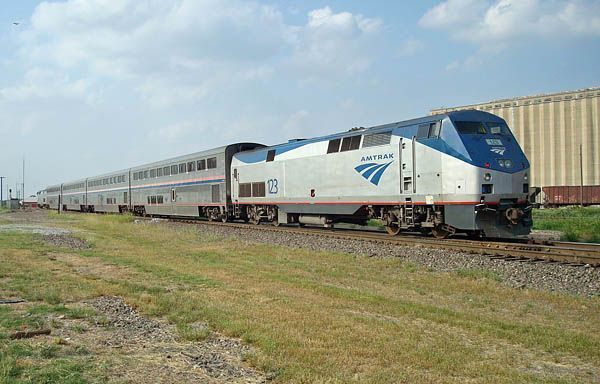BY BOB D. ROUNSAVELL
Margaret Mead, a world-renowned cultural anthropologist of the 20th Century, observed life as constant process and summed it thus: “Never doubt that a small group of thoughtful, committed individuals can change the world. Indeed it’s the only thing that ever has.”
The history of humankind abounds with individuals and small groups that have effected change in the world. We have recently seen such an event in Oklahoma with the unanimous votes of both the governor’s team of five cabinet secretaries and the state’s Transportation Commission to sell the Sooner Sub rail track, which connects Sapulpa [Tulsa] and Midwest City [Oklahoma City].
Proponents of passenger train service between our two largest cities, several of whom have worked for more than a decade to obtain it, had an unforeseen success. These individuals and small groups and organizations banded together and working with much dedication and energy, in the final analysis, were successful.
Approaching key legislators and others with similar interests, they appear to have persuaded the state to work out an arrangement creating passenger rail service.
The promise of a train between Tulsa and OKC will be realized in the near future.
Such demonstration of participatory democracy in our state had citizens from all walks of life calling and contributing their ideas about the feasibility of passenger rail service for Oklahoma and about its operation.
As car owners, do we still need a train to connect our largest metro areas? How many regular trips shall we need? What times of the day or night?
Selling the Sooner Sub did not particularly set well with those of us who have labored for years to get Oklahoma to retain rail ownership. We wanted a public-private partnership for a passenger train that conjoins nearly three-fourths of the state population. We thought state ownership and control would guarantee quality service, as profitable and safe as the Heartland Flyer between Oklahoma City and Fort Worth.
However, the state is not the only one capable of running a quality service. Obviously despite its name – i.e. Department of Transportation – and its constant refrain of “we are not in the railroad business,” ODOT lacked any interest whatsoever in serving the two cities with a passenger train.
On the other hand, the WATCO Companies, of which the Stillwater Central Railroad is a significant part, have over the years of their lease of the track reinvigorated a freight operation and, in turn, helped create new businesses along the route.
Now they will partner with Iowa Pacific Holdings in establishing passenger rail service. It is hoped that together they will help the economic development of the region served by passenger rail service. With a daily traffic count of 75,000 on I-44, there really is no reason for failing. And Tulsa, Oklahoma City and the entire state will reap the benefits of their success.
Many involved with this issue must now wait to see what happens and when. Skepticism still exists among those who did not want Oklahoma to sell this valuable asset.
However, as per the purchase agreement regarding the Sooner Sub to be signed by WATCO in July and required by the Oklahoma Transportation Commission, pilot rail service will be initiated within five years. If WATCO does not, a $2.5 million penalty will be assessed.
According to Jeff Van Schaick, WATCO Assistant Vice President for Government Affairs, passenger train service will begin as soon as feasible – and, more important, it will be done right. There is no reason to think WATCO in conjunction with Iowa Pacific Holdings won’t succeed because of their faith of financial gain from its purchase price three times that offered by BNSF.
It appears that a relationship will exist between the state and two private rail operators to provide both freight and passenger train service. That sounds like a public-private partnership to me, although not the one many of us had envisioned.
Shall we all come together in support of this operation? When the Eastern Flyer rolls, will you buy your train ticket and enjoy a much smoother, more productive trip between our two cities? Riding the train will be much more enjoyable, less costly, and a whole lot safer for our health and our environment than dealing with loaded trucks barreling down I-44.
I’ll take the train any day. How about you?
– Bob Rounsavell, president of the Carrie Dickerson Foundation, served on the 2012 Eastern Flyer Passenger Rail Development Task Force







